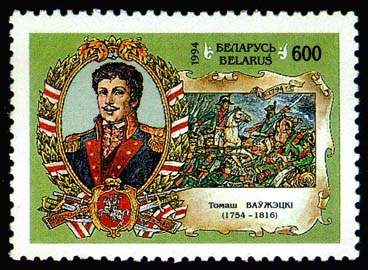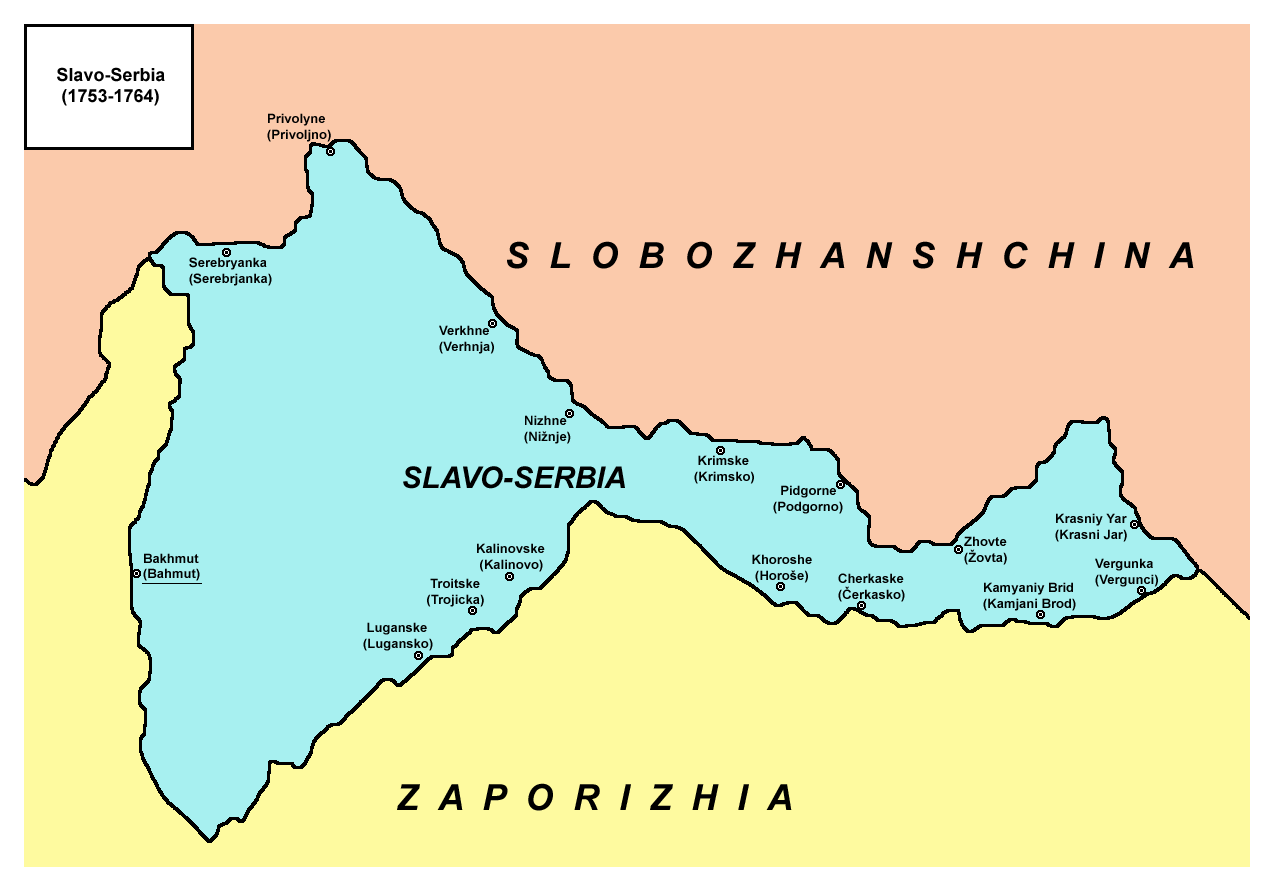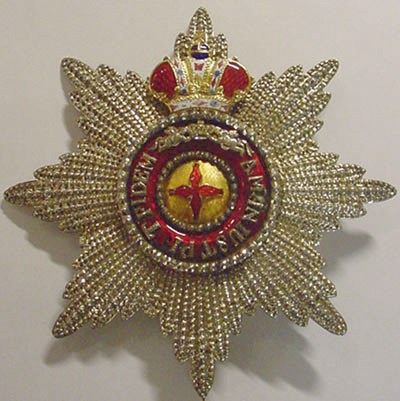|
Ilya Mikhailovich Duka
Baron Ilya Mikhailovich Duka (russian: Илья Михайлович Дука; 1768–28 February 1830) was a Russian general in the Napoleonic Wars. Biography Ilya Mikhailovich Duka came from a Serbian family that emigrated to Russia, established in the Kursk Governorate. In May 1776, he joined the infantry at Shlisselburg (formerly Nöteborg) near St. Petersburg. In 1783 he fought against Polish confederates alongside the Russian Imperial Army and was promoted to aide-de-camp to Major-General Ivan Šević, the grandson of Jovan Šević. He participated in the Russo-Turkish campaign in 1788-89 and was transferred to the Ostrogozh Light Cavalry Regiment in 1790. During the campaign in Poland in 1794, he distinguished himself by capturing General Tomasz Wawrzecki and his officers, and was promoted to major. In October 1799, he was transferred to the Life Guard Hussar Regiment and promoted to colonel. On 23 October 1806, Duka was appointed ''chef'' of the Little Russia Cuirassier R ... [...More Info...] [...Related Items...] OR: [Wikipedia] [Google] [Baidu] |
Baron
Baron is a rank of nobility or title of honour, often hereditary, in various European countries, either current or historical. The female equivalent is baroness. Typically, the title denotes an aristocrat who ranks higher than a lord or knight, but lower than a viscount or count. Often, barons hold their fief – their lands and income – directly from the monarch. Barons are less often the vassals of other nobles. In many kingdoms, they were entitled to wear a smaller form of a crown called a ''coronet''. The term originates from the Latin term , via Old French. The use of the title ''baron'' came to England via the Norman Conquest of 1066, then the Normans brought the title to Scotland and Italy. It later spread to Scandinavia and Slavic lands. Etymology The word '' baron'' comes from the Old French , from a Late Latin "man; servant, soldier, mercenary" (so used in Salic law; Alemannic law has in the same sense). The scholar Isidore of Seville in the 7th century t ... [...More Info...] [...Related Items...] OR: [Wikipedia] [Google] [Baidu] |
War Of The Sixth Coalition
In the War of the Sixth Coalition (March 1813 – May 1814), sometimes known in Germany as the Wars of Liberation, a coalition of Austria, Prussia, Russia, Spain, the United Kingdom, Portugal, Sweden, and a number of German States defeated France and drove Napoleon into exile on Elba. After the disastrous French invasion of Russia of 1812 in which they had been forced to support France, Prussia and Austria joined Russia, the United Kingdom, Sweden, and Portugal, and the rebels in Spain who were already at war with France. The War of the Sixth Coalition saw major battles at Lützen, Bautzen, and Dresden. The even larger Battle of Leipzig (also known as the Battle of Nations) was the largest battle in European history before World War I. Ultimately, Napoleon's earlier setbacks in Spain, Portugal and Russia proved to be the seeds of his undoing. With their armies reorganized, the allies drove Napoleon out of Germany in 1813 and invaded France in 1814. The Allies defeated the ... [...More Info...] [...Related Items...] OR: [Wikipedia] [Google] [Baidu] |
Tomasz Wawrzecki
Tomasz Antoni Wawrzecki () (1753–1816) was a distinguished Polish-Lithuanian politician and military commander. During Kościuszko Uprising, he succeeded Tadeusz Kościuszko as the . Early life Tomasz Wawrzecki was born in the in 1754 or 7 March 1759. Wawrzecki was a judge in the Lithuanian Tribunal in 1778, 1782 and 1784. Great Sejm (1788–1792) During the Four-Year Sejm, Wawrzecki belonged to the Patriotic Party. In 1790, in his manor in near Kruonis, he replaced serfdom with contractual agreements. On 17 May 1790, Wawrzecki, Matheus Butrymowicz, Jacek Jezierski and Ignacy Wyssogota Zakrzewski all condemned attacks against the Jewish population of Warsaw. Wawrziecki was of the opinion that Jews should have equal rights, however, this was motivated by the desire to make them socio-culturally resemble Poles more. Together with others, Wawrziecki contributed to writing the Constitution of 3 May 1791 and also initiated the foundation of civilian and military adminis ... [...More Info...] [...Related Items...] OR: [Wikipedia] [Google] [Baidu] |
Jovan Šević
Jovan Šević or Ivan Šević ( sr-Cyrl, Јован Шевић, russian: Иван Егорович Шевич; died ) was an 18th-century military officer of Serb origin. He reached the rank of lieutenant colonel in the Serb militia forces in the Pomorišje region, then in the Military Frontier of the Habsburg monarchy. When it became obvious that privileges granted to Serb militiamen would be reduced or completely revoked after Pomorišje and Potisje lost their frontier status, Šević left Habsburg military service in 1750 and moved to Russia. At the end of 1752, he led the second wave of colonists who migrated from Pomorišje, Potisje and Slavonia to the Russian Empire (modern-day Ukraine) where they settled the newly established administrative region of Slavo-Serbia at the beginning of 1753. To enable him to recruit more of his fellow officers, Šević was promoted to the rank of General by the Russian Empress, Elizabeth. He commanded a Serb Hussar Regiment consisting of the c ... [...More Info...] [...Related Items...] OR: [Wikipedia] [Google] [Baidu] |
Ivan Šević
Ivan () is a Slavic male given name, connected with the variant of the Greek name (English: John) from Hebrew meaning 'God is gracious'. It is associated worldwide with Slavic countries. The earliest person known to bear the name was Bulgarian tsar Ivan Vladislav. It is very popular in Russia, Ukraine, Croatia, Serbia, Bosnia and Herzegovina, Slovenia, Bulgaria, Belarus, North Macedonia, and Montenegro and has also become more popular in Romance-speaking countries since the 20th century. Etymology Ivan is the common Slavic Latin spelling, while Cyrillic spelling is two-fold: in Bulgarian, Russian, Macedonian, Serbian and Montenegrin it is Иван, while in Belarusian and Ukrainian it is Іван. The Old Church Slavonic (or Old Cyrillic) spelling is . It is the Slavic relative of the Latin name , corresponding to English ''John''. This Slavic version of the name originates from New Testament Greek (''Iōánnēs'') rather than from the Latin . The Greek name is in t ... [...More Info...] [...Related Items...] OR: [Wikipedia] [Google] [Baidu] |
Shlisselburg
Shlisselburg ( rus, Шлиссельбу́рг, p=ʂlʲɪsʲɪlʲˈburk; german: Schlüsselburg; fi, Pähkinälinna; sv, Nöteborg), formerly Oreshek (Орешек) (1323–1611) and Petrokrepost (Петрокрепость) (1944–1992), is a town in Kirovsky District of Leningrad Oblast, Russia, located at the head of the Neva River on Lake Ladoga, east of St. Petersburg. Population: The Shlisselburg Fortress and the town center are UNESCO World Heritage Sites. History Fortress The city was founded in 1323 with a wooden fortress named Oreshek () which was built by Grand Prince Yury of Moscow (in his capacity as Prince of Novgorod) on behalf of the Novgorod Republic in 1323. After a series of conflicts, a peace treaty was signed at Oreshek on August 12, 1323, between Sweden and Grand Prince Yury and the Novgorod Republic. In 1348 king Magnus Eriksson attacked and briefly took the fortress during his crusade in the region in 1348–1352. It was largel ... [...More Info...] [...Related Items...] OR: [Wikipedia] [Google] [Baidu] |
Napoleonic Wars
The Napoleonic Wars (1803–1815) were a series of major global conflicts pitting the French Empire and its allies, led by Napoleon I, against a fluctuating array of European states formed into various coalitions. It produced a period of French domination over most of continental Europe. The wars stemmed from the unresolved disputes associated with the French Revolution and the French Revolutionary Wars consisting of the War of the First Coalition (1792–1797) and the War of the Second Coalition (1798–1802). The Napoleonic Wars are often described as five conflicts, each termed after the coalition that fought Napoleon: the Third Coalition (1803–1806), the Fourth (1806–1807), the Fifth (1809), the Sixth (1813–1814), and the Seventh (1815) plus the Peninsular War (1807–1814) and the French invasion of Russia (1812). Napoleon, upon ascending to First Consul of France in 1799, had inherited a republic in chaos; he subsequently created a state with stable financ ... [...More Info...] [...Related Items...] OR: [Wikipedia] [Google] [Baidu] |
Order Of Saint Anna
The Imperial Order of Saint Anna (russian: Орден Святой Анны; also "Order of Saint Anne" or "Order of Saint Ann") was a Holstein ducal and then Russian imperial order of chivalry. It was established by Karl Friedrich, Duke of Holstein-Gottorp, on 14 February 1735, in honour of his wife Anna Petrovna, daughter of Peter the Great of Russia. Originally, the Order of Saint Anna was a dynastic order of knighthood; but between 1797 and 1917 it had dual status as a dynastic order and as a state order. The Order of St. Anna continued to be awarded after the revolution by Grand Duke Kirill Vladimirovich, Grand Duke Vladimir Kirillovich, and Grand Duchess Maria Vladimirovna. Today, the Russian Imperial Order of St. Anna, awarded by Grand Duchess Maria Vladimirovna is recognized as an order of chivalry by the privately operated ICOC as a continuation of the pre-Revolutionary order, and has been approved for wear with military uniform by the Russian Federation, but not by s ... [...More Info...] [...Related Items...] OR: [Wikipedia] [Google] [Baidu] |
Gold Sword For Bravery
The Gold Sword for Bravery (russian: Золотое оружие "За храбрость") was a Russian award for bravery. It was set up with two grades on 27 July 1720 by Peter the Great, reclassified as a public order in 1807 and abolished in 1917. From 1913 to 1917 it was renamed the Saint George Sword (''Георгиевское оружие'') and considered one of the grades of the Order of St. George. Select recipients *General Alexander von Kaulbars *Generalissimo Alexander Suvorov *Field Marshal Mikhail Kutuzov *General Pyotr Bagration *Field Marshal Peter Wittgenstein *Field Marshal Ivan Paskevich *Field Marshal Hans Karl von Diebitsch *Admiral Alexander Menshikov *General Mikhail Gorchakov *Field Marshal Mikhail Vorontsov *General Nikolay Muravyov-Karsky *General Vasili Bebutov *Field Marshal Friedrich Wilhelm Rembert von Berg *General Yegor Tolstoy *Tsar Alexander II *General Aleksey Brusilov *General Dmitry Nadyozhny *General Anton Denikin *Admiral Alexander ... [...More Info...] [...Related Items...] OR: [Wikipedia] [Google] [Baidu] |
Order Of Leopold (Austria)
The Austrian Imperial Order of Leopold (german: Österreichisch-kaiserlicher Leopold-Orden) was founded by Franz I of Austria on 8 January 1808. The order's statutes stipulated only three grades: Grand Cross, Commander and Knight. During the war, in common with the other Austrian and later Austro-Hungarian decorations, crossed swords were instituted to reward bravery in the face of the enemy. An Imperial Decree of 1 February 1901 ordered that in future, the senior grade would be split into two separate awards. From then onwards, there were four ranks: Grand Cross, First Class, Commander, Knight. Until 18 July 1884, the award of the order also entitled the recipient, if he was not already of that standing, to be raised to the following appointments and/or ranks of the nobility: *Grand Cross: Privy Councillor *Commander: Baron *Knight: Ritter Insignia Both the Grand Cross and the First Class members of the Order wore (on formal occasions) their insignia in the form of a sash ... [...More Info...] [...Related Items...] OR: [Wikipedia] [Google] [Baidu] |
Order Of The Red Eagle
The Order of the Red Eagle (german: Roter Adlerorden) was an order of chivalry of the Kingdom of Prussia. It was awarded to both military personnel and civilians, to recognize valor in combat, excellence in military leadership, long and faithful service to the kingdom, or other achievements. As with most German (and most other European) orders, the Order of the Red Eagle could only be awarded to commissioned officers or civilians of approximately equivalent status. However, there was a medal of the order, which could be awarded to non-commissioned officers and enlisted men, lower ranking civil servants and other civilians. History The predecessor to the Order of the Red Eagle was founded on 17 November 1705, by the Margrave Georg Wilhelm of Brandenburg-Bayreuth as the '' Ordre de la Sincerité''. This soon fell into disuse but was revived in 1712 in Brandenburg-Bayreuth and again in 1734 in Brandenburg-Ansbach, where it first received the name of "Order of the Brandenburg Red Eagle ... [...More Info...] [...Related Items...] OR: [Wikipedia] [Google] [Baidu] |






